Cats technically can eat hummus, a few bites won’t do them any harm at all.
However, the main ingredient in hummus is chickpeas which are hard for your cat to digest, hummus also often contains a small amount of garlic which can be toxic to cats.
Contents
Can Cats Eat Chickpeas?
Chickpeas are the main ingredient in hummus.
Chickpeas are not toxic to cats so if your cat eats a few of them or eats some hummus then you don’t need to worry.
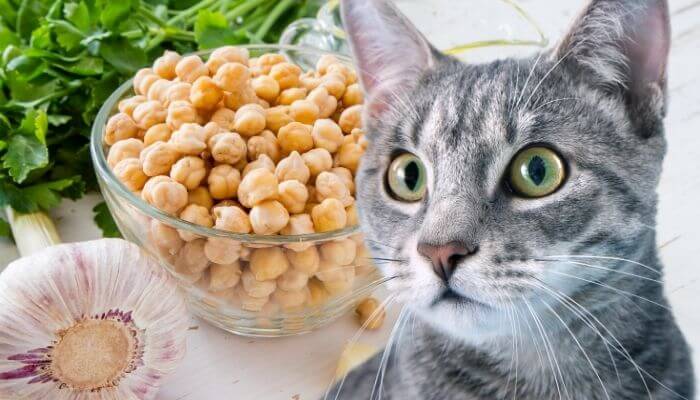
However despite this you shouldn’t feed your cat hummus for a number of reasons:
1. Chickpeas Are Hard To Digest
Raw chickpeas contain something called antinutrients, these are plant-based compounds that make it harder for your body to absorb essential nutrients.
Chickpeas have a low glycemic index, this means they take a long time to digest and it takes a long time for the glucose in the food to get into your cat’s bloodstream.
2. High Carbohydrate
100 grams of chickpeas contains roughly 61 grams of carbohydrates and 19 grams of protein.
Cats are obligate carnivores and do not need high levels of carbohydrate in their diet, their diets should consist of 100% high quality proteins.
Unfortunately, some cheaper cat foods bulk out their products with cheap carbohydrate fillers which your cat does not need.
Overconsumption of carbohydrates will cause weight gain and related conditions such as feline diabetes, heart disease and more.
As chickpeas contain so much carbohydrate they should not be given to cats on a regular basis as long term they will cause health problems.
3. Oxalic Acid Can Trigger Allergies
Oxalic acid is an organic acid that can be found in chickpeas.
For most cats, ingesting a small amount of oxalic acid will have no impact on them, however if your cat is prone to allergies, skin conditions or food intolerances then oxalic acid could potentially trigger these.
Oxalic acid can also contribute to kidney disease, so if you know that your cat has kidney issues or your cat is older (12 years+) then oxalic acid is best avoided.
That said the levels of oxalic acid found in chickpeas are very low so in most cases it is unlikely that it will have any noticeable impact.
Are Chickpeas Toxic To Cats?
No, chickpeas are not toxic to cats.
If your cat eats a few (or even quite a lot) chickpeas, there are unlikely to be any serious ill effects, they certainly won’t be poisoned.
They may suffer digestion problems due to the fact that chickpeas take a long time to digest, this could cause vomiting and loss of appetite.
Why Is Garlic Toxic To Cats?
Garlic is extremely concentrated so even a very small amount of it can be enough to poison a cat.
Garlic, like onions, contains disulfides and thiosulphates which are extremely toxic to cats. If eaten they can damage your cat’s red blood cells making it hard for the cells to carry oxygen and leading to extreme breathlessness.
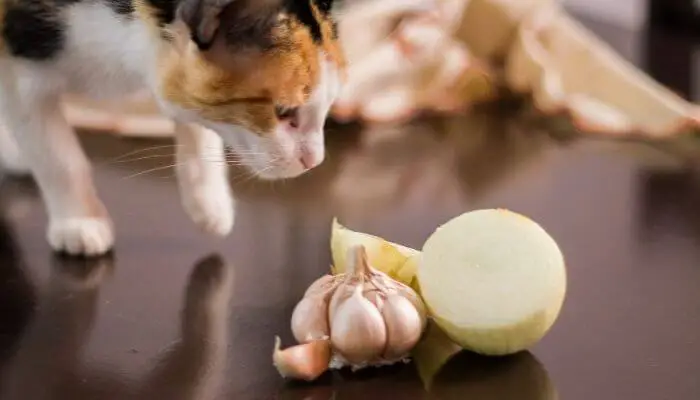
Less than half a clove of garlic could make a cat very ill.
Depending on the hummus up to one full clove of garlic may be used for a 15oz/425g serving.
In which case if your cat consumed 260grams of hummus they could suffer from garlic poisoning.
Depending on your cats, age, size and breed they may suffer from garlic poisoning from eating as little as 100grams or less of hummus.
Also Read:
Can Cats Eat Kidney Beans?
Can Cats Eat Quorn?
Can Cats Eat Prawns?
What To Do If Your Cat Eats Hummus
If your cat has only eaten a small amount of hummus there is no need to worry, it will have no serious impact on them.
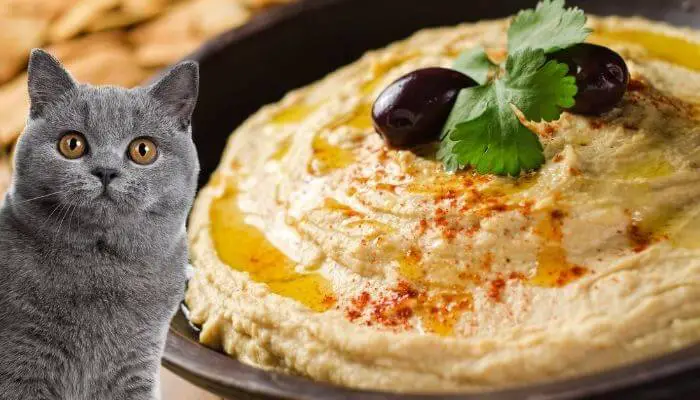
If your cat has decided to eat a whole bowl of hummus then problems could occur due to garlic poisoning.
However this will depend on how much garlic was used and how big your cat is.
Keep an eye on your cat in the hours after they have eaten it and watch out for:
- Vomiting
- Reduced Appetite
If these are the only symptoms your cat shows then chances are after a sleep they will feel better, however if the vomiting is not just a one-off occurrence then your should speak to your vet ASAP.
You should specifically watch out for symptoms of garlic poisoning such as:
- Excessive tiredness
- Weakness
- Lack of muscle coordination
- Pale gums
- Discolored urine (brown or red)
- Extreme salivation
- Repeated vomiting
- Diarrhea
If you notice any of these signs you should get your cat to the vet immediately as garlic poisoning can be fatal.

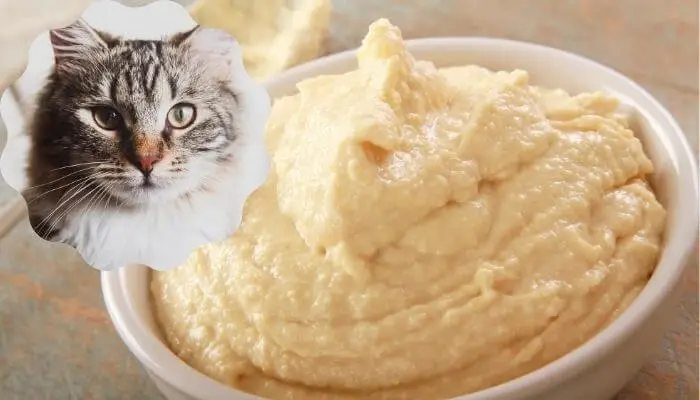
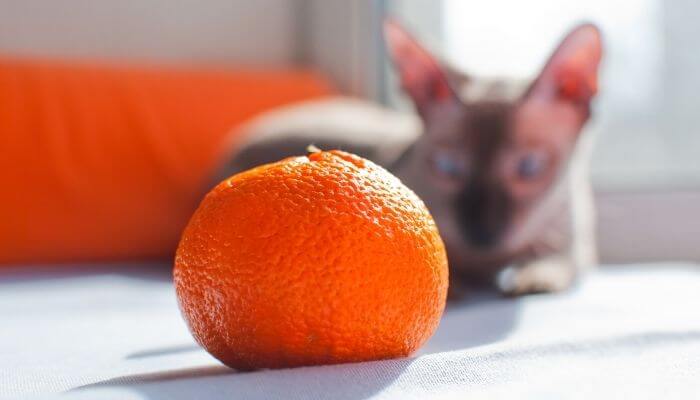
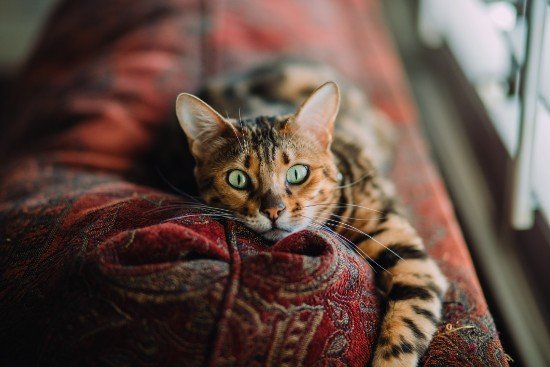
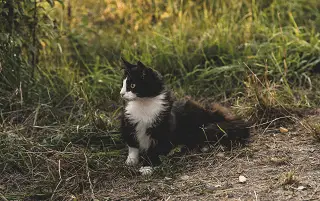
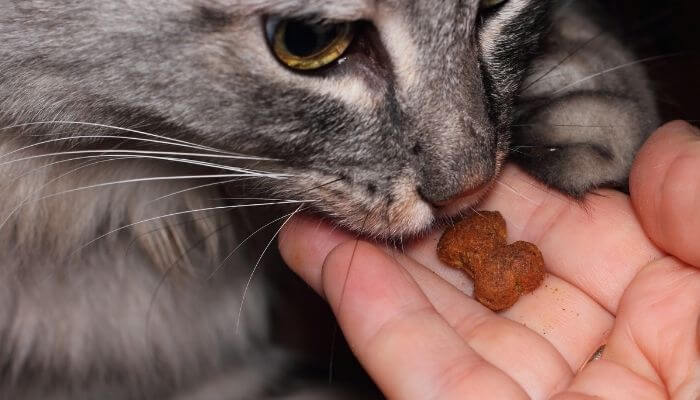
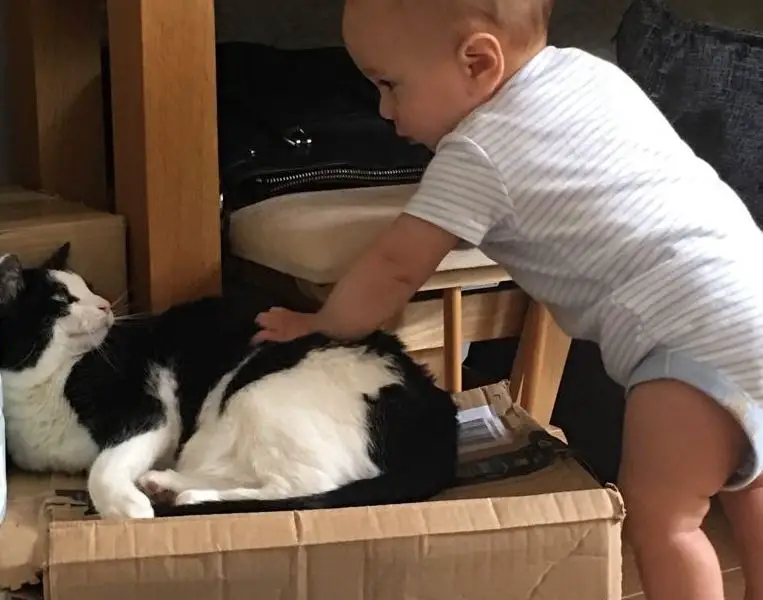

Leave a Comment